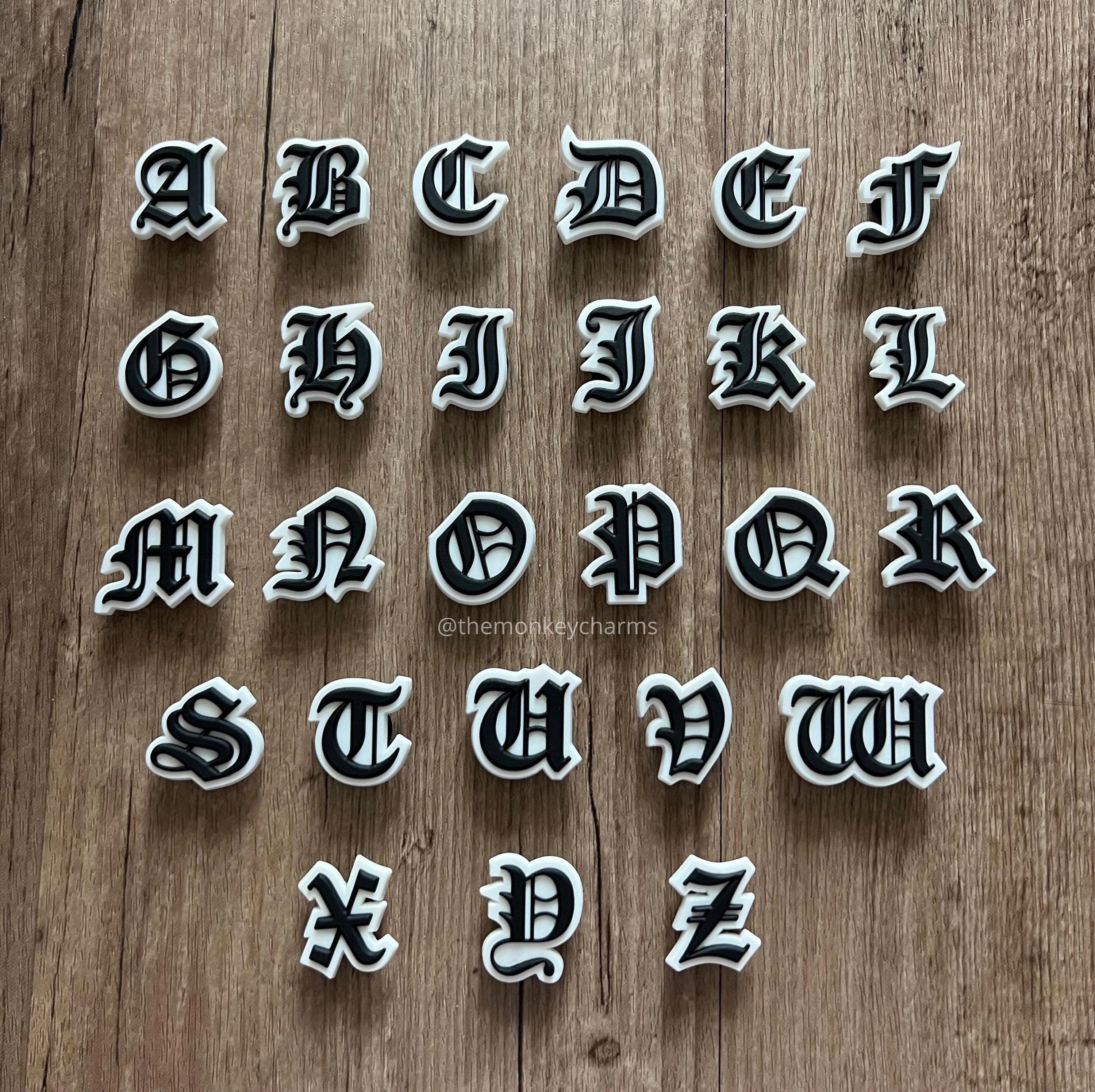The Curious Caſe of the Old Engliſh Letter ſ
Imagine stumbling upon an antique book, its pages filled with elegant, archaic script. As you trace the lines of text, you notice a peculiar character that resembles an 'f' but stretches further down, often with a curious flick at the end. This, my friend, is the 'long s,' a once ubiquitous letter in the English language that now seems like a relic from a forgotten age.
The long s, denoted by the symbol 'ſ,' reigned supreme in the world of written English from the Middle Ages until the early 19th century. Its presence alone marks a text as belonging to a different era, a time when quill pens scratched across parchment and the printed word held a certain mystique. But what was the purpose of this elongated 's,' and why did it eventually vanish from our alphabet?
The story of the long s is intertwined with the evolution of writing itself. In earlier forms of the Latin alphabet, from which English derives, the letter 's' did not have a standardized form. Different variations existed, including the long s, which gradually gained prominence in handwriting and printing. It was used in a variety of contexts, often at the beginning or in the middle of words, while the familiar 'short s' that we use today typically appeared at the end.
The reasons for this distinction are unclear, but some scholars believe it may have been related to the aesthetics of handwriting or the limitations of early printing presses. Whatever the case, the long s became an integral part of written English for centuries. It graced the works of Shakespeare, the Declaration of Independence, and countless other historical documents. To read these texts in their original form is to encounter the long s in all its glory, a tangible reminder of the ever-changing nature of language.
However, the reign of the long s was not to last. By the turn of the 19th century, the tide was turning against this once-ubiquitous letter. The reasons for its demise were multifaceted, ranging from evolving typographic trends to a desire for greater clarity and standardization in printed materials. The short s, with its simpler form, ultimately won out, consigning the long s to the annals of history.
Advantages and Disadvantages of Using Old Engliſh Letter ſ
| Advantages | Disadvantages |
|---|---|
| Evokes a historical or archaic aesthetic. | Can be confusing for modern readers unfamiliar with the letterform. |
| Adds a touch of elegance and distinction to typography. | Not supported by all fonts, potentially leading to display issues. |
| Provides a more authentic reading experience when dealing with historical texts. | May hinder readability for some, especially in longer texts. |
Best Practices When Using Old Engliſh Letter ſ
While the long s is no longer a part of standard English orthography, it continues to hold a certain fascination for history buffs, typographers, and anyone with an appreciation for the quirks of language. If you're interested in incorporating this archaic character into your own creative projects, here are a few best practices to keep in mind:
- Use Sparingly: A little goes a long way. Overusing the long s can make your text look cluttered and difficult to read. Reserve it for special occasions, such as titles, headings, or design elements where you want to evoke a historical feel.
- Choose the Right Font: Not all fonts support the long s. Opt for typefaces that are specifically designed for historical or archaic settings, ensuring that the character renders correctly and blends seamlessly with the rest of your text.
- Consider Your Audience: If you're writing for a general audience, it's best to steer clear of the long s altogether. However, if you're creating content for a niche group that appreciates such historical nuances, then by all means, embrace the long s in all its glory.
- Be Consistent: Once you've decided to use the long s, stick with it throughout your text. Don't switch back and forth between the long and short forms, as this will only create confusion for your reader.
- Proofread Carefully: Because the long s is an unfamiliar character for most people, it's easy to overlook errors in its usage. Double-check your work carefully to ensure that all your long s's are in the right place and that your text flows smoothly.
Common Questions About Old Engliſh Letter ſ
The long s, like many vestiges of the past, often sparks curiosity and raises questions. Here are answers to some frequently asked questions about this intriguing letter:
- Is the long s still used today? No, the long s is no longer used in modern English. However, it can still be found in historical texts, academic works, and creative projects that aim to evoke a historical aesthetic.
- Why does the long s look like an 'f'? The long s and the letter 'f' share a common ancestor in earlier forms of the Latin alphabet. Over time, their forms diverged, but the resemblance persists, particularly in certain typefaces.
- How do I type the long s on a computer? Most standard keyboards do not have a dedicated key for the long s. However, you can usually insert it using a character map, a special character palette available in most operating systems. Additionally, some word processing software and text editors offer shortcuts or plugins for inserting special characters like the long s.
Tips and Tricks for Using Old Engliſh Letter ſ
Here are a few additional tips and tricks to keep in mind:
- When using the long s in digital design, ensure your font files include the character and that it renders correctly across different browsers and devices.
- Explore historical printing techniques, such as letterpress, to truly capture the essence of the long s and its visual impact.
- Don't be afraid to experiment! Play around with different fonts, sizes, and styles to see how the long s can enhance your projects.
The long s may seem like a small, insignificant detail in the grand scheme of things, but its story is a microcosm of the evolution of language itself. It serves as a reminder that the way we communicate is constantly changing, adapting to new technologies, cultural shifts, and evolving aesthetic sensibilities. While the long s may be gone from our everyday writing, it lives on in the historical record, a testament to the enduring power and ever-evolving nature of the written word. So the next time you come across this curious character in an old book or manuscript, take a moment to appreciate its history, its beauty, and its contribution to the rich tapestry of the English language.
Sherwin williams best beige paint disrupting the neutral palette
Charming japanese girl names a guide to finding the perfect name
Banish water rings save your wood tables beauty

Free Printable Old English Calligraphy Capital Letter F | Innovate Stamford Now

Pin on LETTERING, ALPHABETS | Innovate Stamford Now

Wafer Botschafter alt crocs jibbitz j 1 2 Auslassen Schach spielen Esel | Innovate Stamford Now

old english letters s | Innovate Stamford Now

old english letters s | Innovate Stamford Now

Capital letters, initial sticker, typeface old english, Aufkleber | Innovate Stamford Now

Old English Font Old English Style Font Old English Letters Old English | Innovate Stamford Now

Old English style letter "B" tattooed on the wrist. | Innovate Stamford Now

Old English Font SVG PNG Bundle, Old English Svg, Old English Alphabet | Innovate Stamford Now

orez beton Demonteaza gothic font generator grămadă tăcere A doua zi | Innovate Stamford Now

Graffiti Letters: 61 graffiti artists share their styles | Innovate Stamford Now

old english letters s | Innovate Stamford Now

Pin on Things you should do! | Innovate Stamford Now

Free Printable Old English Calligraphy Capital Letter D | Innovate Stamford Now

Free Printable Old English Calligraphy Capital Letter E | Innovate Stamford Now